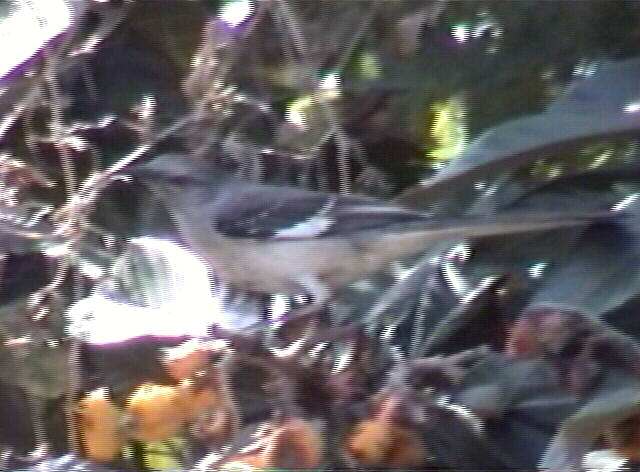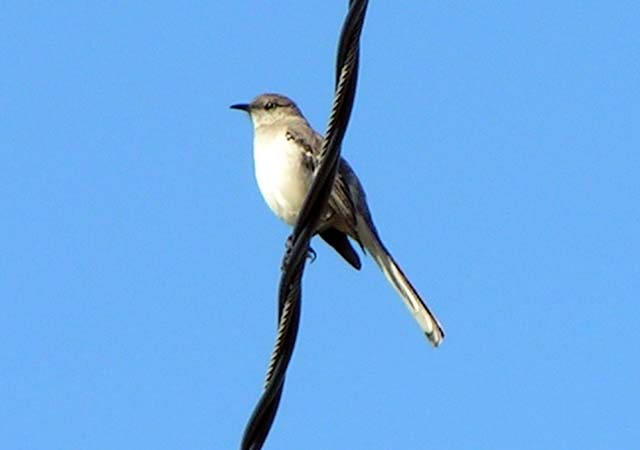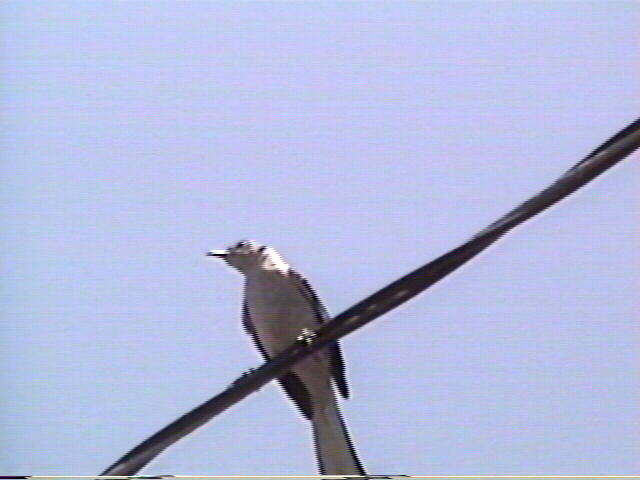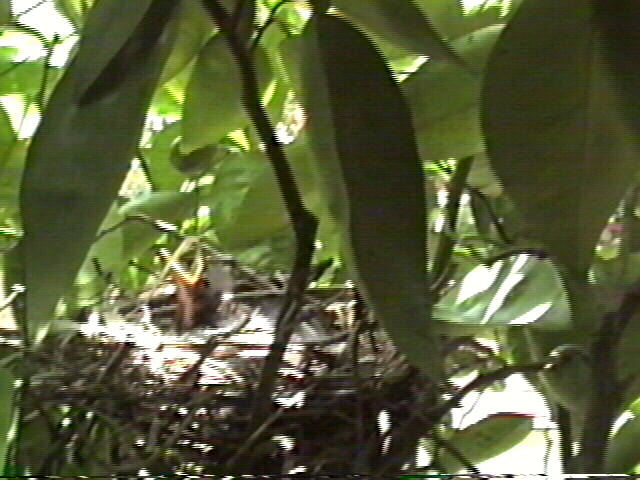|
|
|
The northern mockingbird (
Mimus polyglottos ) is as common in our area as the American robin is
in the northeastern part of the country. They get their name
from the fact that the males create unique songs by stringing together
sounds they have heard, but always ending with the mockingbird
"signature".
However, while composing a song for the coming season, they
frequently
sing bits and pieces, which they are considering, and it is sometimes
difficult to identify the source as a bird.
 This
mockingbird is eating
loquats. When the
neighbor with cats moved, I had to put a net over my blackberry
vines and tomatoes. The white wing bars and white side stripes on
the tail are key identification marks.
This
mockingbird is eating
loquats. When the
neighbor with cats moved, I had to put a net over my blackberry
vines and tomatoes. The white wing bars and white side stripes on
the tail are key identification marks.
 The
males often perch
where where
they can guard their territory, and advertise for a mate. They
sometimes begin singing hours before sunrise, which upsets some light
sleepers. Especially when their songs include sounds such as car
alarms. The one I found most annoying was the time the bird which
claimed our yard imitated my electronic alarm clock. Pressing the
snooze button didn't help.
The
males often perch
where where
they can guard their territory, and advertise for a mate. They
sometimes begin singing hours before sunrise, which upsets some light
sleepers. Especially when their songs include sounds such as car
alarms. The one I found most annoying was the time the bird which
claimed our yard imitated my electronic alarm clock. Pressing the
snooze button didn't help.
 This
male (Watching me
because I'm closer to his nest than he likes.) has a slight deformity
of his beak. Because of the identifying mark, we know that this
bird nested in our yard for at least five successive years.
Mockingbirds will "dive bomb" anyone approaching too closely to
their nest. Although serious injury is not likely, it is an
unpleasant experience.
This
male (Watching me
because I'm closer to his nest than he likes.) has a slight deformity
of his beak. Because of the identifying mark, we know that this
bird nested in our yard for at least five successive years.
Mockingbirds will "dive bomb" anyone approaching too closely to
their nest. Although serious injury is not likely, it is an
unpleasant experience.
 A hungry
nestling
expecting the
return of a parent. Mockingbirds generally build two successive
nests in different sites each year. This one is in our tangelo (citrus)
tree.
A hungry
nestling
expecting the
return of a parent. Mockingbirds generally build two successive
nests in different sites each year. This one is in our tangelo (citrus)
tree.
[Taxonomy :
Classification]
[Birds] [ Back Yard Biology]
[ Science
Can Be Fun]